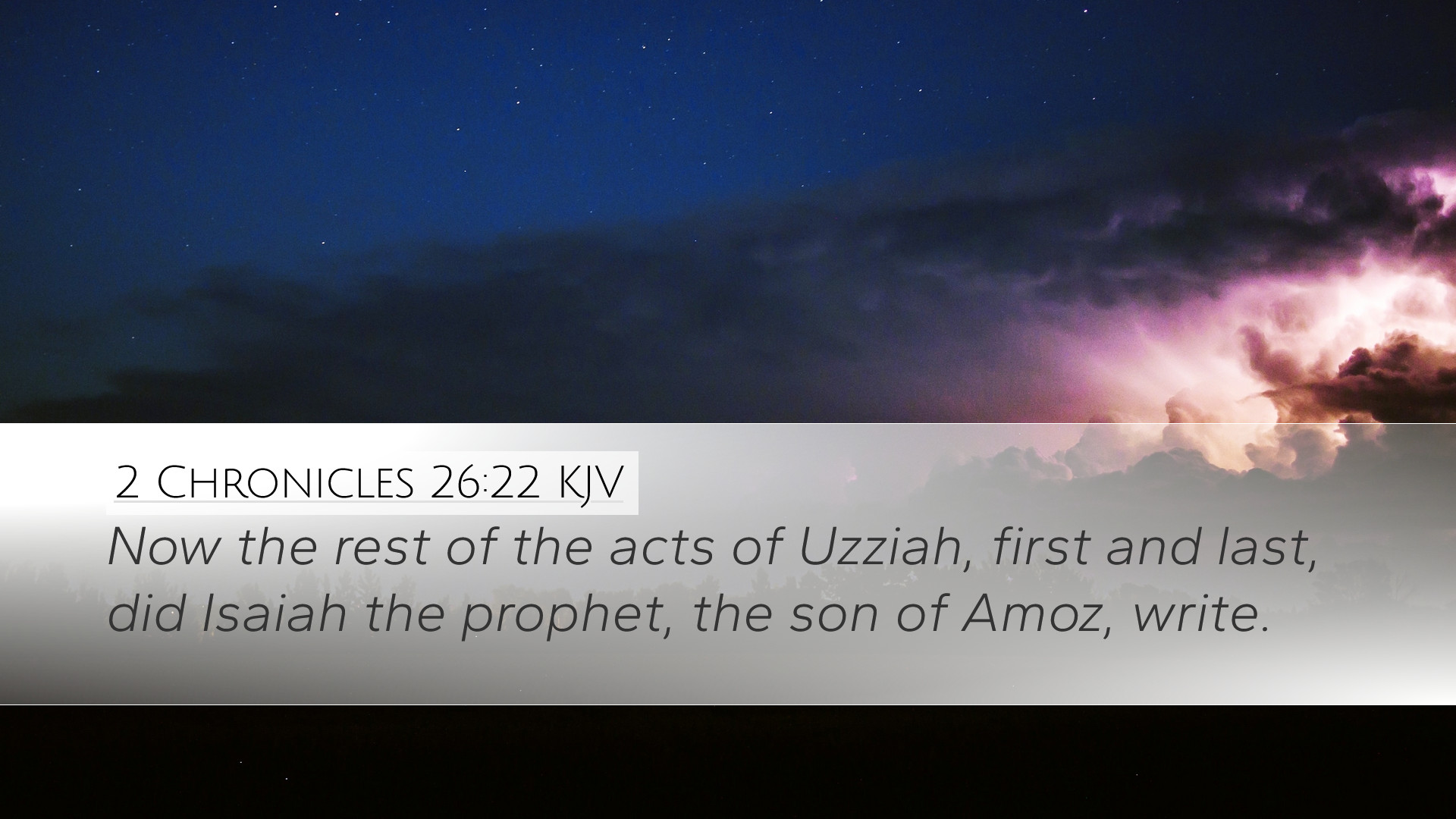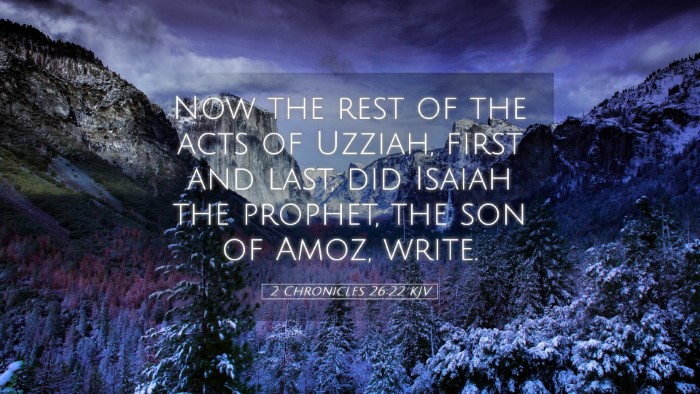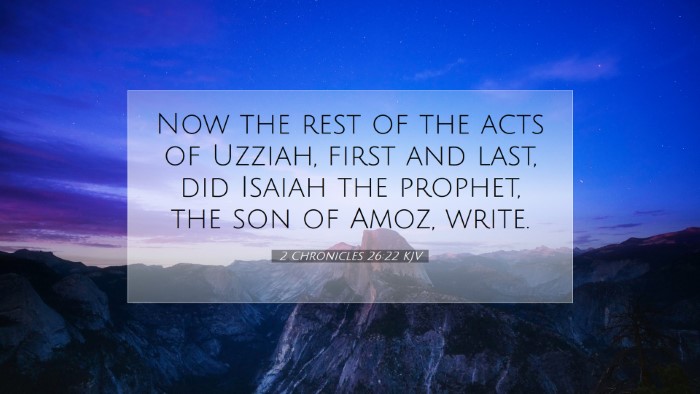Commentary on 2 Chronicles 26:22
Verse: "Now the rest of the acts of Uzziah, first and last, did Isaiah the prophet, the son of Amoz, write."
2 Chronicles 26:22 serves as a crucial bridge in understanding the reign of King Uzziah (also known as Azariah), one of the kings of Judah. This verse points to the historical accounts that extend beyond the immediate narrative, highlighting the significance of Isaiah the prophet's contributions to the recording of Uzziah's reign.
Contextual Overview
The book of Chronicles often recapitulates the histories provided in the books of Samuel and Kings, but with a theological lens that emphasizes the temple, worship, and the covenant relationship between God and Israel. Uzziah's reign is significant for several reasons: his accomplishments in military and agricultural advancements, architectural developments, and his ultimately tragic downfall due to pride.
Historical Significance
Uzziah's long reign (52 years) is characterized by prosperity and military victories, as detailed in the previous verses. His leadership brought about a revival in Judah as he sought God during the early years of his reign (2 Chronicles 26:5). The mention of Isaiah as the prophet who documented Uzziah’s acts adds a layer of prophetic endorsement and oversight, indicating that Uzziah's attribution of success had prophetic affirmation.
The Role of the Prophet Isaiah
Isaiah's involvement in chronicling the events of Uzziah's reign underscores the intertwining of prophetic ministry and kingship in ancient Israel. The implications of Isaiah being the "son of Amoz" stress the prophetic lineage and authority from which he operated.
Literary Contribution
Matthew Henry discusses how the records of Uzziah's reign serve not only as a historical account but also as a moral lesson. The detailed accounts provided by Isaiah reflect the importance of taking heed of one’s spiritual state and formulating a worship that is pleasing in God’s sight.
Albert Barnes notes that the chronicler's intent is to record more than mere events; he emphasizes the spiritual condition of Judah and the role of the king in leading the nation in faithfulness to God. The mention of Isaiah indicates the necessity of prophetic guidance for the rulers of Israel, suggesting that leadership should always be aligned with divine counsel.
Theological Implications
This verse raises important theological themes relevant to both past and contemporary audiences:
- The Sovereignty of God: The overarching narrative establishes that God remains in control of history, shaping the paths of kings according to His will.
- Role of Prophecy: The historical accounts recorded by prophets inform the nation and later generations about divine expectations and the consequences of turning away from God.
- Human Responsibility and Spiritual Leadership: Uzziah's successful reign offers a model of how obedience to God leads to prosperity, whereas pride leads to downfall
Practical Applications for Leaders
This commentary can serve as a guide for pastors, theologians, and students:
- Emphasize the importance of spiritual authority: Leaders should seek guidance and accountability through the prophetic voices within their communities.
- Promote humility: Understanding the consequences of pride as demonstrated in Uzziah’s life can foster a culture of humility and continuous reliance on God’s wisdom.
- Encourage historical awareness: An exploration of past leaders’ successes and failures can provide valuable lessons for contemporary ministry practices.
Conclusion
2 Chronicles 26:22 not only closes a chapter on Uzziah's reign but reaffirms the prophetic voice's critical role in guiding God’s people. Isaiah’s writings reflect a divine oversight that calls both leaders and laypersons to reflect on their relationship with God. In examining this verse, modern readers are reminded to seek prophetic insight while being vigilant against pride and disobedience, affirming that true success in leadership comes through faithfulness to God and His commands.


